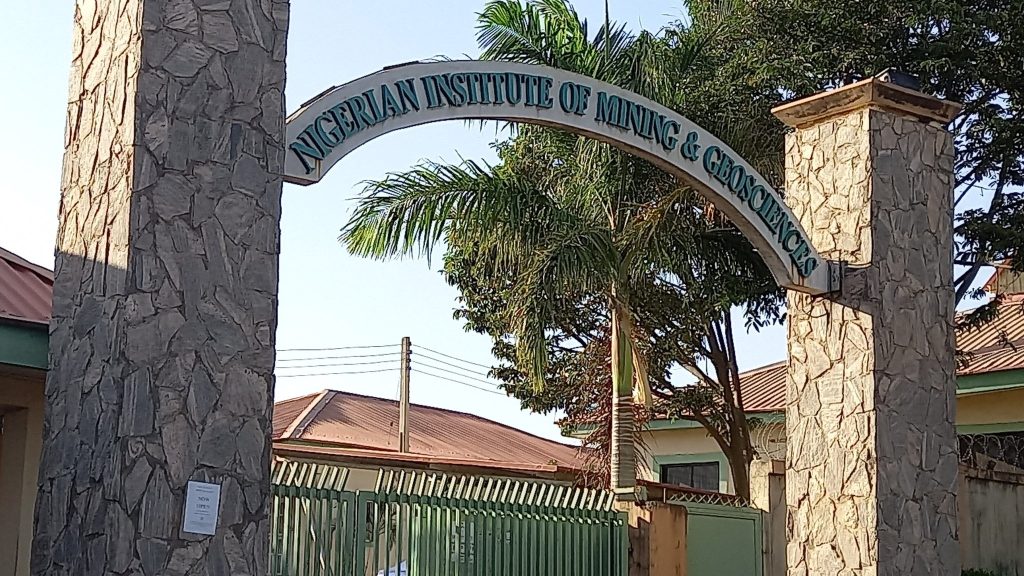The Nigerian Institute of Mining and Geosciences (NIMG) in Jos is set to launch diploma programs in 2025, marking a significant expansion in its educational offerings.
In an interview with Voice of Nigeria, Professor Suleiman Bolaji, CEO of NIMG, shared insights on how the institute is shaping the future of mining activities in Nigeria. He also revealed that the institute has received approval to award degrees.
“Recently, we have been given approval to run ND programs,” Professor Bolaji stated. “The ND program will be offered in three areas: Metallurgical and Materials Technology, Mineral Processing and Petroleum Engineering, and Computer Science. We will start admitting students to these three ND programs in 2025.”
He further explained that this development is part of the institute’s broader initiative to expand its impact, aiming not just to produce graduates, but also to equip them with the skills necessary to work in the field. “This expansion is part of our initiative to produce individuals who will not only excel academically but also be capable of hands-on work in real mining environments. We have secured the necessary approvals, and I believe by 2025, we will be fully operational in these new areas.”

The Nigerian Institute of Mining and Geosciences, established as the training and research arm of the Ministry of Mines and Steel Development, has been pivotal in providing specialised training. “NIMG was set up under the Ministry of Solid Minerals Development,” Bolaji explained. “We have been actively involved in training, and we also offer short-term courses for technicians, businessmen, top civil servants, miners, and corporate bodies. Our training is designed to address the gaps that exist between the traditional universities and polytechnics in the education of mining engineers, mineral exploration engineers, and mineral processing professionals.”
He emphasised the technical nature of the institute’s training, which includes extensive fieldwork. “Our training is highly technical and includes a comprehensive field trip component, making it distinct from what is offered at regular universities or polytechnics.”
Regarding the institute’s role, Professor Bolaji clarified that NIMG does not conduct exploration activities. “We focus on training. We train individuals who then go on to carry out exploration. We equip them with adequate knowledge and hands-on experience with machinery, so they become experts.”
He highlighted Nigeria’s rich mineral resources, stating, “Nigeria has a vast number of mineral deposits—if I’m not wrong, about 45 different minerals. These deposits are spread across every state and even down to local governments. Precious stones, in particular, are found throughout the country.”
However, Professor Bolaji also pointed out the challenges faced by the institute, particularly in terms of funding for research and development. “As a training and research institute, we know there can be no training without research, and no research without training. Research and development are capital-intensive, and currently, the institute lacks sufficient funding from both government and external sources to carry out thorough research and development.”
He mentioned a recent student project that developed a gold processing equipment prototype, but noted that more funding is needed to improve and scale this innovation. “One of our students developed a gold processing equipment, but to refine it and make it viable for local miners, more funding is needed.”
He also shared that NIMG submitted a research proposal to the Nigerian government and the Czech Republic for developing mercury-free gold processing equipment. “We call it ‘Go Free’—a gold processing machine that eliminates the use of mercury, which is highly poisonous. Unfortunately, our proposal has not yet received further funding.”
Professor Bolaji concluded by discussing the institute’s plans to address the gap between high-level professionals and those who work directly in the field. “We recognise that while we are producing high-level graduates, there is also a need to train lower-level manpower who are actually in the field. We are committed to addressing this gap by launching relevant programs.”
With these developments, the Nigerian Institute of Mining and Geosciences is poised to play a crucial role in the future of Nigeria’s mining sector, providing both advanced training and practical solutions to industry challenges.

